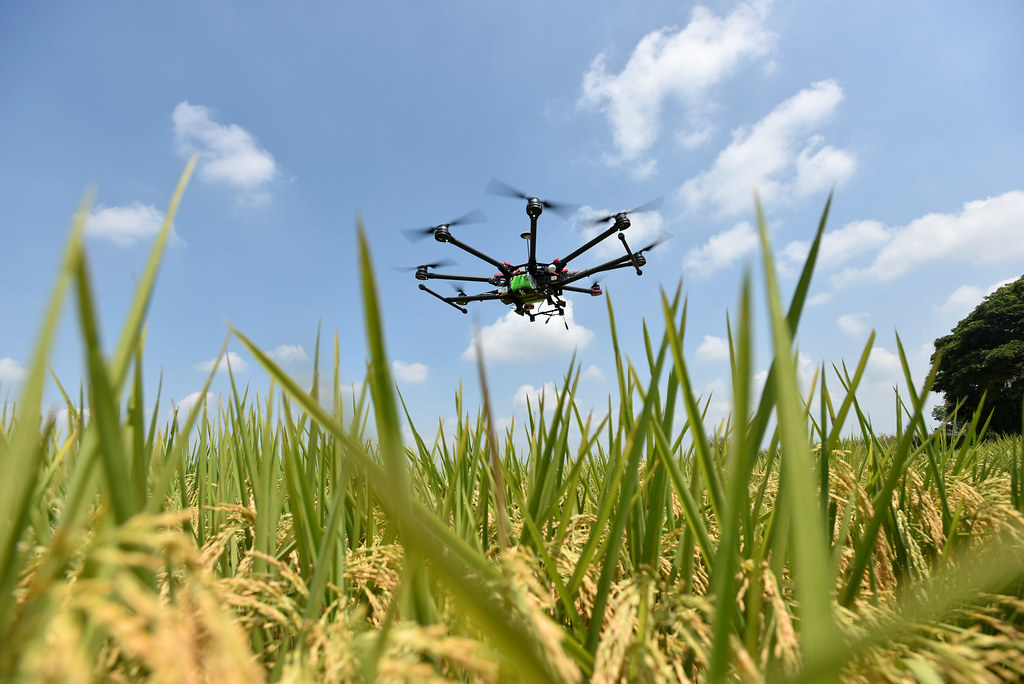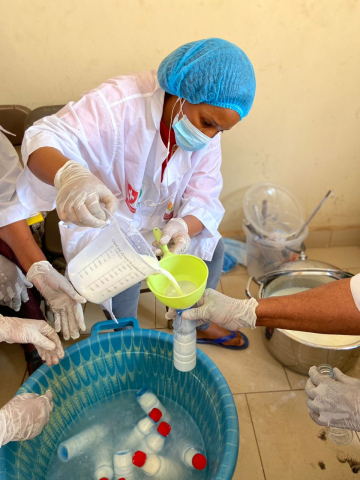The Global Climate Change Alliance Plus (GCCA+) is the second phase of an initiative of the same name launched by the European Commission in 2008 to strengthen dialogue and cooperation in the fight against climate change (CC) between the European Union (EU) and the most vulnerable developing countries. The main aim of this 2nd phase is to take account of changing development challenges and thus contribute to achieving the Sustainable Development Goals (SDGs) defined by the United Nations and to implementing the Paris Agreement (PA).
The GCCA+ initiative continues to support countries through two mutually reinforcing pillars: policy and technical dialogue and support for the implementation of national and regional climate change adaptation and mitigation policies, with greater emphasis on climate knowledge management and communication.
The priorities for the GCCA+ initiative are as follows :
- Strengthen the scientific and technical capacity of the sub-regions to reduce vulnerability to climate change;
- Promote the integration of climate change aspects into development policies, strategies, programmes and projects at sub-regional and national levels;
- Support the development and implementation of sub-regional and national programmes and projects on adaptation to climate change.
The GCCA+ Initiative comprises :
- A "Global" programme, made up of country-specific programmes under the supervision of local EU delegations
- An « intra-ACP » programme coordinated by the ACP secretariat, which is intended to work at regional level and has been divided into regional projects, including a section dedicated to West Africa and implemented by Expertise France under the aegis of ECOWAS.
The GCCA+ West Africa project, which is a regional version of the intra-ACP programme, aims to contribute to the West African regional effort to implement the Paris Climate Agreement.
The GCCA+ West Africa project is part of a regional cooperation initiative. It aims to contribute to the regional effort to implement the Paris Agreement and to strengthen West Africa's resilience to climate change. This project was innovative in more ways than one. The cross-border nature of climate change means that certain responses must go beyond the national level. The GCCA+ WA project is helping to increase the West African region's capacity to deal with the challenges of climate change, which cannot be resolved at national level alone, in accordance with the ECOWAS principle of subsidiarity. The project operates at different levels, from a regional perspective : International (climate negotiations within the framework of the UNFCCC); regional (political cooperation with the ECOWAS regional climate strategy, and scientific cooperation with the Agrhymet Regional Centre ( ARC) of the Permanent Inter-State Committee for Drought Control in the Sahel (CILSS); national (national capacity building for the implementation of the Paris Agreement); and finally local (climate-smart agriculture pilot projects conducted locally but whose lessons learned are shared at regional level). It is therefore based on: i) multidisciplinary action made possible by the commitment of regional stakeholders, ii) a multi-stakeholder dynamic guaranteeing a coherent response, and iii) a partnership approach serving regional institutions.
Thèmes du projet
To take part in the West African regional effort to implement the PA on climate, by building the capacities of West African regional institutions, but also by supporting the emergence of innovative field solutions to strengthen the climate resilience of agricultural and rural stakeholders.
Specific objective
This project is implemented by Expertise France under the political leadership of the ECOWAS Commission, in technical collaboration with the CILSS, through the Agrhymet Regional Centre.
Expertise France's implementation of this project has focused on the leadership and development of regional institutions. Following a review and analysis of the mandate of ECOWAS and the other regional partner institutions, including CILSS, tools and actions were proposed to highlight the climate action potential of each in line with their respective mandates. As far as the ECOWAS Commission is concerned, actions have focused on strengthening its mandate as a regional integration organisation, while respecting its founding principles and capitalising on ECOWAS's existing and rich history of climate action.
Expertise France has set up a regional project coordination unit (PCU), housed within the ECOWAS Regional Agency for Agriculture and Food (RAAF), which has a mandate to monitor and support the implementation of regional projects under the auspices of ECOWAS that contribute to the implementation of regional policies.
The project is also anchored directly within the ECOWAS Commission in Abuja, with direct links to the PCU, through the presence of a technical assistant on climate finance.
Outcome 1
- ECOWAS and its specialised bodies develop operational and institutional capacities that meet the needs of member countries (+ Chad and Mauritania) in GCCA+ focus areas, in climate negotiations and in the implementation of the Paris Climate Agreement.
Outcome 2
- Regional (ECOWAS) and national climate change strategies and priorities serving the GCCA+ focus areas for the implementation of the Paris Climate Agreement in member countries are strengthened and their implementation is supported.
Outcome 3
- Adaptation pilot projects, including solutions based on an ecosystem approach, already tested and implemented in ECOWAS countries and serving as references for future replication are scaled up (extension or replication).
Outcome 4
- Regional organisations and countries in the ECOWAS/CILSS space intensify strategic dialogue, strengthen their negotiating capacities, share information and skills, results and knowledge on climate action.
Outcome 5
- The capacities of technical institutes, universities and regional centres to provide training, research and innovation support services in sectors related to climate change adaptation and mitigation are strengthened.
Outcome 6
- With a view to future support through climate finance and investment, innovative approaches involving the public and private sectors to promote climate and economic resilience are prepared and tested.
Main beneficiaries :
ECOWAS Commission, CILSS, Ministries and state agencies.
Secondary beneficiaries :
Citizens of the ECOWAS/CILSS region, local and regional authorities, associations working in the field (NGOs, farmers' organisations), scientific communities in the participating countries and private operators.




